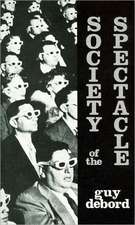Explanatory Pluralism
Autor C. Mantzavinosen Limba Engleză Paperback – 28 mar 2018
| Toate formatele și edițiile | Preț | Express |
|---|---|---|
| Paperback (1) | 274.29 lei 6-8 săpt. | |
| Cambridge University Press – 28 mar 2018 | 274.29 lei 6-8 săpt. | |
| Hardback (1) | 430.16 lei 6-8 săpt. | |
| Cambridge University Press – 25 mai 2016 | 430.16 lei 6-8 săpt. |
Preț: 274.29 lei
Nou
Puncte Express: 411
Preț estimativ în valută:
52.50€ • 54.72$ • 43.70£
52.50€ • 54.72$ • 43.70£
Carte tipărită la comandă
Livrare economică 04-18 ianuarie 25
Preluare comenzi: 021 569.72.76
Specificații
ISBN-13: 9781107576322
ISBN-10: 1107576326
Pagini: 235
Ilustrații: 12 b/w illus.
Dimensiuni: 153 x 230 x 14 mm
Greutate: 0.32 kg
Editura: Cambridge University Press
Colecția Cambridge University Press
Locul publicării:New York, United States
ISBN-10: 1107576326
Pagini: 235
Ilustrații: 12 b/w illus.
Dimensiuni: 153 x 230 x 14 mm
Greutate: 0.32 kg
Editura: Cambridge University Press
Colecția Cambridge University Press
Locul publicării:New York, United States
Cuprins
1. Introduction; 2. The wrong question: what is an explanation?; 3. A brief outlook on the social sciences; 4. Towards explanatory pluralism; 5. The explanatory enterprise; 6. The rules of the explanatory game; 7. The plurality of explanatory games; 8. Explanatory activity as problem solving activity; 9. Explanatory rules as shared rules; 10. Normative appraisal: a procedural conception; 11. Explanatory methodology as technology; 12. Epilogue.
Recenzii
'C. Mantzavinos raises fundamental questions about what a philosophical theory of explanation should do, and he offers a highly original and illuminating approach to the tasks he singles out as important. This book is required reading for anyone interested in the philosophy of science.' Philip Kitcher, John Dewey Professor of Philosophy, Columbia University, New York
'What distinguishes the different scientific disciplines and the evolving developments within any discipline? Mantzavinos says that each discipline plays its own explanatory set of games, each answering to a set of guiding values; and that a game may change in any domain as it proves better answerable to local values or as those values themselves shift. This engaging theory of explanation is philosophically innovative and empirically informed, with discussion ranging widely over the natural, psychological and social sciences.' Philip Pettit, L. S. Rockefeller Professor of Politics and Human Values, Princeton University, New Jersey and Distinguished Professor of Philosophy, Australian National University, Canberra
'This is a very lively and engaging defense of pluralism about explanation. Mantzavinos argues forcefully that no single model of explanation, of the sort traditionally sought by philosophers of science, adequately captures all the different varieties of explanatory activities that go on in science and in other areas of human life. He proposes instead that we understand explanation in terms of a strikingly new notion - that of an explanatory game. Philosophers and non-philosophers alike will find much of interest in this original and stimulating book.' James F. Woodward, Distinguished Professor of History and Philosophy of Science, University of Pittsburgh
'… an important antidote to the ontic conception of explanation that has recently plagued philosophy of science. … [It] refocuses the debate so as to highlight the cognitive and social elements of explanatory activity; it is an important and welcome addition to the literature.' Alexander Beard and Cory Wright, Analysis
'What distinguishes the different scientific disciplines and the evolving developments within any discipline? Mantzavinos says that each discipline plays its own explanatory set of games, each answering to a set of guiding values; and that a game may change in any domain as it proves better answerable to local values or as those values themselves shift. This engaging theory of explanation is philosophically innovative and empirically informed, with discussion ranging widely over the natural, psychological and social sciences.' Philip Pettit, L. S. Rockefeller Professor of Politics and Human Values, Princeton University, New Jersey and Distinguished Professor of Philosophy, Australian National University, Canberra
'This is a very lively and engaging defense of pluralism about explanation. Mantzavinos argues forcefully that no single model of explanation, of the sort traditionally sought by philosophers of science, adequately captures all the different varieties of explanatory activities that go on in science and in other areas of human life. He proposes instead that we understand explanation in terms of a strikingly new notion - that of an explanatory game. Philosophers and non-philosophers alike will find much of interest in this original and stimulating book.' James F. Woodward, Distinguished Professor of History and Philosophy of Science, University of Pittsburgh
'… an important antidote to the ontic conception of explanation that has recently plagued philosophy of science. … [It] refocuses the debate so as to highlight the cognitive and social elements of explanatory activity; it is an important and welcome addition to the literature.' Alexander Beard and Cory Wright, Analysis
Notă biografică
Descriere
This book proposes a new philosophical theory of scientific explanation by developing and defending the position of explanatory pluralism.
























